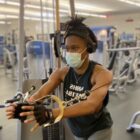Cannabis Use On The Rise Among Women
|
As more states like Connecticut legalize cannabis, there’s been a sharp rise in use by women, data show. Stats complied by Flowhub, a cannabis tech company, report that from early 2020 to late 2021, cannabis sales to female customers increased by 55%. When it came to new customers, 48% were female in 2021, a 10% increase from 2018, when the study was first conducted. Americans are now smoking more marijuana than cigarettes, Gallup reported. In a 2022 Gallup poll, 16% of Americans currently smoke marijuana, while 11% reported smoking cigarettes, which is a new low compared to the mid-1950s, when 45% of Americans smoked cigarettes. According to the Centers for Disease Control and Prevention (CDC) marijuana, which can also be called cannabis – was used by 48.2 million people in 2019.










